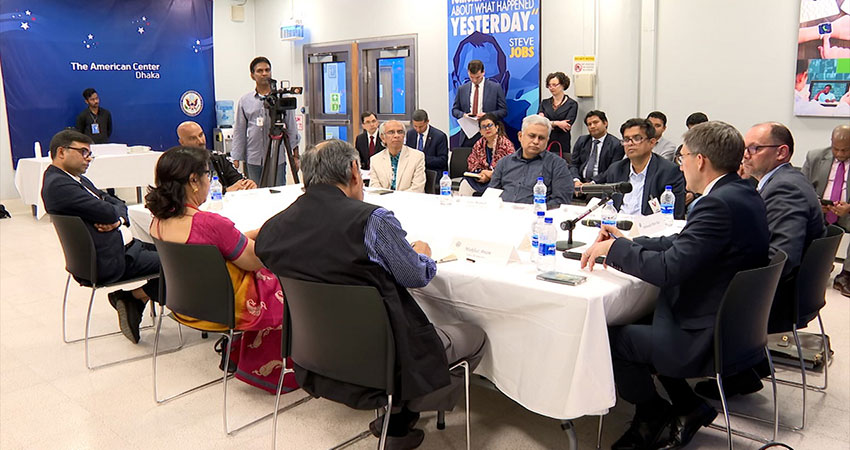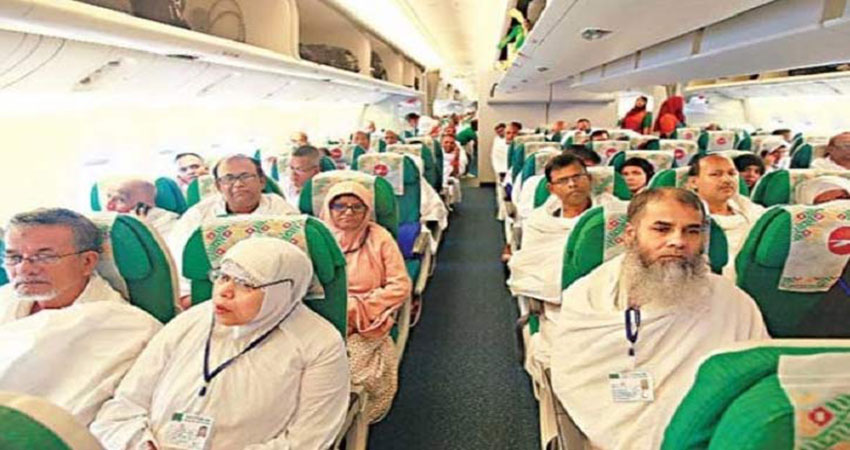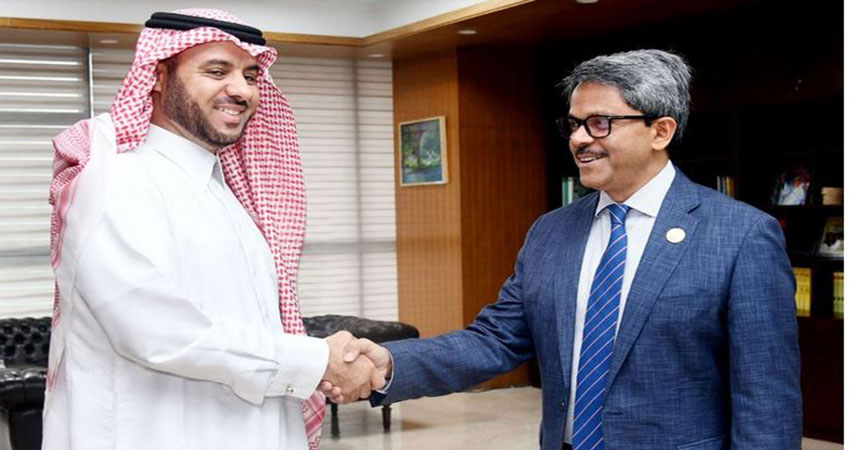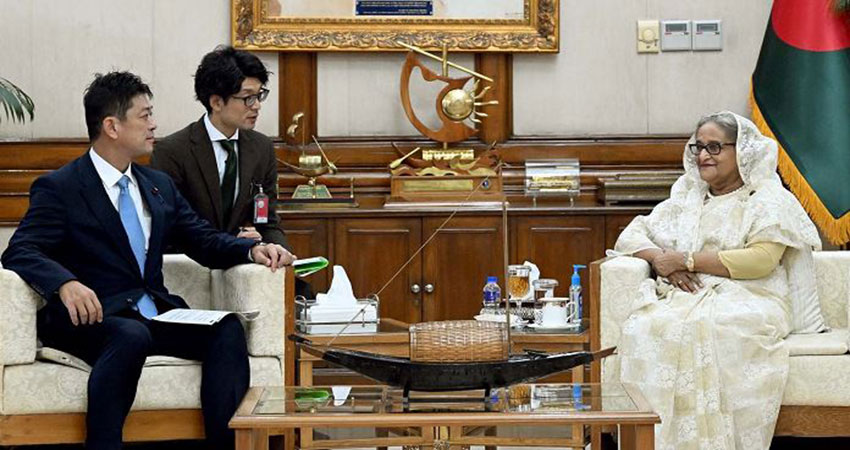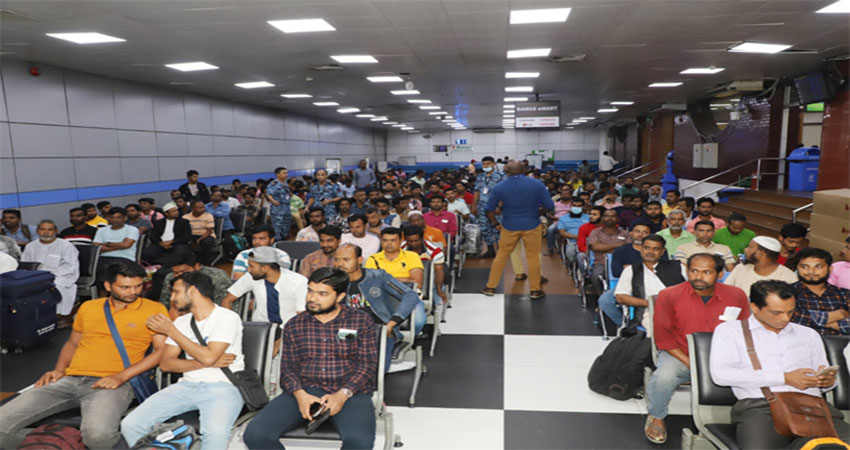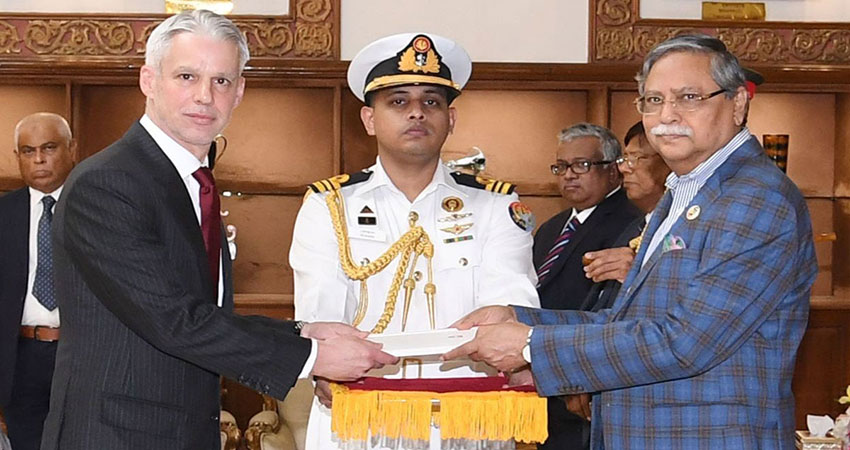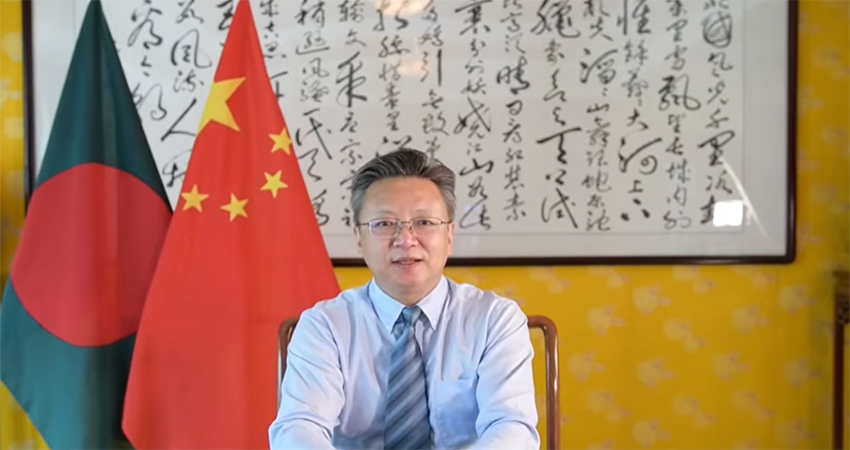An erosion of democracy in Bangladesh will lead to the US limiting its cooperation with the country, Derek Chollet, counsellor, US State Department, said on Wednesday.
During a roundtable discussion with top newspaper editors of the country at the American Centre Auditorium in the capital's Baridhara, Chollet also explained that Bangladesh's decision to not come up with a plan of action for democracy led to it being excluded from the US' Summit of Democracy, scheduled for 29-30 March.
Stressing that the US wanted all elections to be free, fair and inclusive, he said, "If there's an erosion of democracy, it's going to be a limit on our ability to cooperate with each other. We see great potential in this relationship. But the reality is that the United States' strongest partnerships are with strong democracies. If democracies weaken anywhere it is going to be a limiting factor to our ability to cooperate."
He, however, said, it didn't mean the US wouldn't cooperate or the relationship isn't important, but a weakening democracy will be a limiting factor, even in terms of business investments as the private sector won't have confidence in countries lacking transparency or accountability.
He said the US had made no secret of its concerns, regarding human rights and the previous elections, and would continue to do so.
In a meeting with Foreign Minister AK Abdul Momen at the Ministry of Foreign Affairs on the day, Chollet said they had heard the Bangladesh government's commitment on the issues and would hold them to it.
On a question about the caretaker government, he said it was Bangladesh's internal matter.
"We think all elections, wherever they take place, need to be free and fair and conducted in the way that the outcome is accepted by the side that loses. Democracy is hard and we are wrestling with this issue as well. It's a journey not a destination. So when we make this point it comes with a degree of humility and empathy of how hard this can get.
"But generically, strong civil society, inclusive democracy, a strong open free press that is able to ask hard questions and hold leaders accountable is absolutely critical to having a healthy and thriving democracy…and we will continue to support that."
On the democracy summit, he said, "Last year, after the first summit for democracy we asked all countries who attended as well as countries who did not attend the summit to come up with a plan for action for the coming year in ways they will contribute to this overall effort to try to strengthen our shared commitment to democracies.
Saying Bangladesh did not come up with one, which was its own decision, Chollet, however, added that it could be invited in the future as the summit was a priority for US President Joe Biden.
On the increasing frequency of visits by US diplomats to Bangladesh, he said, "I think it's a testament to the importance we place in this relationship."
The counsellor said the US was committed to strengthening ties across the Indo-Pacific, an important agenda for the Biden administration.
Asked about the US sanctions on Rab, Chollet said, "The steps that we took were clear signs of our concerns. It is good to know that in the last year or so there has been diminishment in some activities of Rab we were most concerned about. Nevertheless, in order to really turn the page on this issue we are going to need to see sustained reforms as well as accountability. And quite frankly I don't think we are there yet."
Rohingyas a top priority
Chollet also touched upon the Rohingya issue, which he emphasised was a top priority for the US.
"It is also on our wider efforts on the Burma issue itself, which is trying to get Myanmar back on the path to democracy to create the conditions in which the refugees return to their homes, which they want to do, but they want to do so in a way which is safe. They want to be represented as equal citizens and they can have their dignity.
"Unfortunately, those conditions are not even close to being met on the other side of the border."
Pointing out that the US was the largest single donor of humanitarian assistance for Rohingyas, he said they were also working with Bangladesh to ease the suffering of the people living in the refugee camps.
He said "part of the reason why we wanted to come here and talk about the Rohingya issues in particular was just to send a message" that even in time of so much stress in the humanitarian support system - terrible earthquake, biblical floods in Pakistan, crisis in Ukraine - the issue of the Rohingyas "remains on our agenda".
Deteriorating US-China relations
Asked about deteriorating US-China relationship, which Chollet termed the "most complex and consequential relationship we have with anyone in the world", he said no country was being asked to choose either side.
"But we are asking them to think about our shared principles and our shared interests."
He said there were competitive and even adversarial elements in the US-China relationship, but it could be managed responsibly.
"Unfortunately, in recent days we have seen the PRC [People's Republic of China] behave irresponsibly by flying a surveillance balloon across the United States."
He, however, said there were elements which remained cooperative, too.
"But it is a narrowing band of issues in which we can cooperate with the Chinese."
The counsellor serves at the rank of under-secretary as a senior policy advisor to the US Secretary of State Antony J Blinken on a wide range of issues and conducts special diplomatic assignments as directed by him.
Monday's event was attended by Mahfuz Anam, editor, The Daily Star; Tasmima Hossain, editor, Daily Ittefaq; Fahim Ahmed, head of news, Jamuna TV; Inam Ahmed, editor, The Business Standard; Shafiqul Alam, bureau chief, AFP; Talat Mamun, executive director, Channel 24; and Muzzammil Husain, editor, Daily Samakal.
US Ambassador Peter Haas accompanied Derek Chollet during the roundtable.
Bangladesh left out of democracy summit as it did not place action plan: US official
